Text
Good Reads: Sexual Health Zines

Pictured: Choose Your Own Consensual Adventure & Smart Tart zines
Here at eLEEP, we get all stirred up about all things health literacy, and this time we lucked out! We picked up some great reading material at Cambridge's first annual New England Zine Fest (presented by Boston's bostonhassle), and were astounded and thrilled by the amount of sexual health literacy being independently created and produced right here in Boston!
These real people writing about real sexual health information, options and experience transcends that of the textbook "Sex 101" spiels and diagrams—speaking out about healthy sex from personally learned healthy understandings that no textbook can touch on.
Health literacy and its relevance in the media is understated and sometimes dated, but these inventive zines are a great way to spread the word of sexual health in a creative and enticing form.
Take pleasurepie for instance, whose "Choose Your Own Consensual Adventure" zine let's its reader choose their own journey from the very beginning: "You're making out with someone. Things are getting steamy. You're really turned on. You want to have sex. Continue..." From there, readers are free to choose their own "adventures" with the help of some great sexual health information and advice.
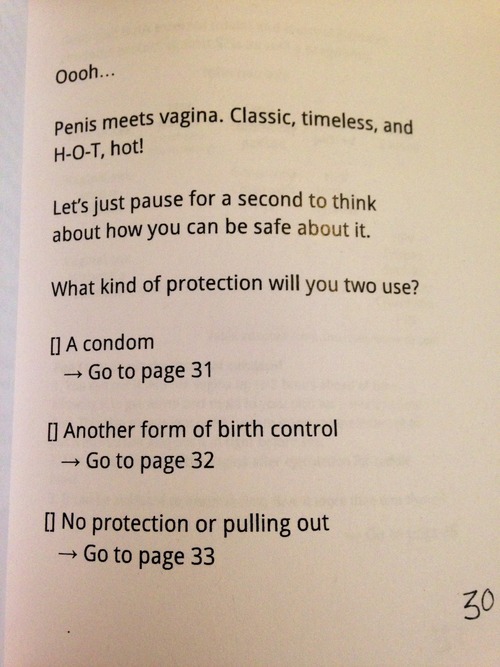
Be sure to check out Pleasure Pie, whose "efforts center around sex positivity, body positivity, positivity about other good things" and Smart Tart, spreading knowledge and support on sexual health to all.
3 notes
·
View notes
Text
Our Final Productions
Well, that's a wrap.
eLEEP Summer 2014 comes to a close, but not without these outstanding sexual health videos courtesy of our peer leaders with Boston's Start Strong, PLI, Family Van and VIP. Check them out and learn something!
"Emerson 28"
"The Elevator"
"Date Farm"
"Real Talk"
"Let's Talk About Sex"
"eShare"
"Let's Talk About Sex, Maybe"
"Let's Talk Teen Show"
"We Are Different"
"Meet The Parmesons"
#sexualhealth#medialiteracy#emerson college#eleep#eleep2014#Start Strong#pli#familyvan#bostonpublichealth
0 notes
Photo
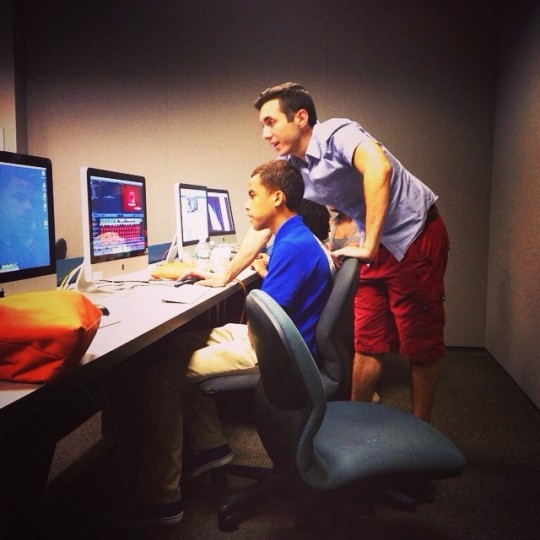
#eLEEP #PLI Peer Leaders and Peer Mentor finalizing and publishing their #sexualhealth awareness videos @emersoncollege
0 notes
Photo
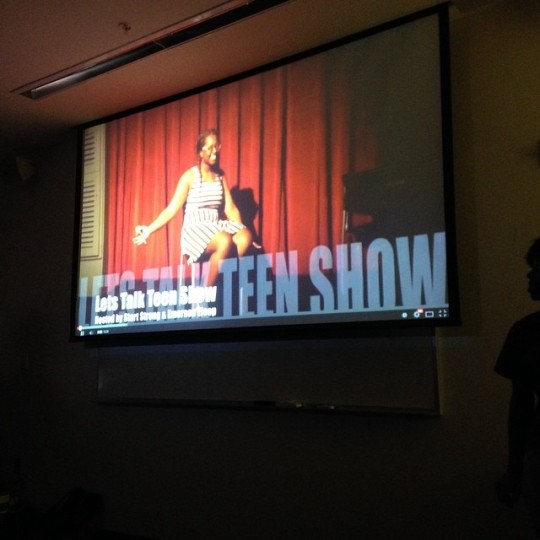
VIDEO TIME! #StartStrong directed, shot and produced empowering #sexualhealth videos. #medialiteracy @emersoncollege
0 notes
Text
Friends Without Benefits
"If you’re between 8 and 18, you spend more than 11 hours a day plugged into an electronic device. The average American teen now spends nearly every waking moment on a smart phone or computer or watching TV. This seismic shift in how kids spend their time is having a profound effect on the way they make friends, the way they date, and their introduction to the world of sex."
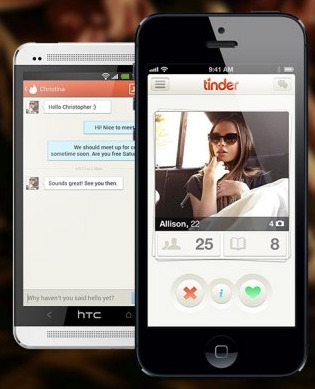
Nancy Jo Sales, author and journalist known for her Vanity Fair article which inspired the major motion picture "The Bling Ring," has a lot to say about today's young people and their means of an "informative" adolescence.
"Friends Without Benefits" follows young women from New York and LA whom Sales got to talking with concerning the effects of social media on their personal, sexual lives. With the use of social media sites including Facebook, Twitter, Instagram, and dating apps like Tinder, Grindr, and Blendr, young men and women are creating a new approach to dating and sexual relationships—perhaps the only approach they know.
When your live exists and evolves on a 2"x4" iPhone screen, social media dating feels normal. Combined with the easily accessible online world of sex, screen-to-screen dating has an immense and often overlooked influence on young people and their understanding of what a healthy dating and/or sexual relationship looks like.
She wanted it to be like the scene in the Lana Del Rey video for “Blue Jeans”—“hot and slow and epic.” The scene where strangers meet and fall into an easy intimacy, making love in a pool—“and they look so hot and it’s just, like, totally epic.” A boy at her school—she didn’t want to talk about him now; he’d broken her heart; but “like, whatever.” She’d “deleted him” from her phone. “I was stalking him too much, seeing him doing fun things on Instagram, and it hurt.”
This snippet from Sales' "Friends Without Benefits" may sound familiar. As she zooms in on the online social scene it becomes apparent that one isolated case may be indicative of an entire generation. Let's prove her wrong.
Be sure to read "Friends Without Benefits," and check out this VF interview with Sales following the reception of the article.
2 notes
·
View notes
Photo
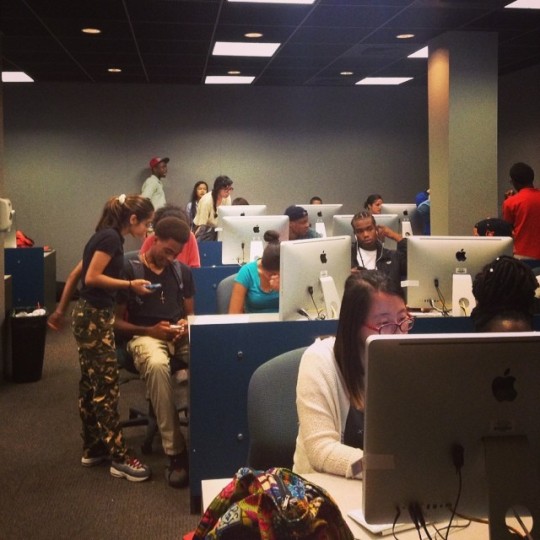
Editing down our #sexualhealth videos #startstrong #medialiteracy @emersoncollege
0 notes
Text
We're halfway through eLEEP 2014, and there's so much to do!
It's now video production time, where our peer leaders will put their proactive discussions into authoritative videos to promote healthy sexual relationships. We're producing heartfelt narratives, hilarious parodies and well-crafted skits — stay tuned!
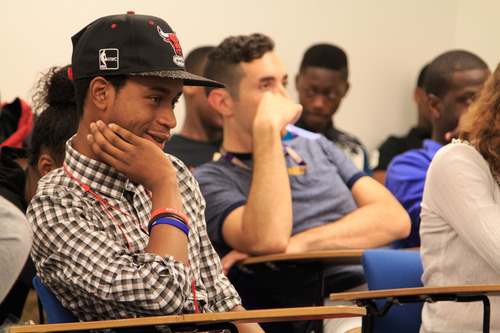
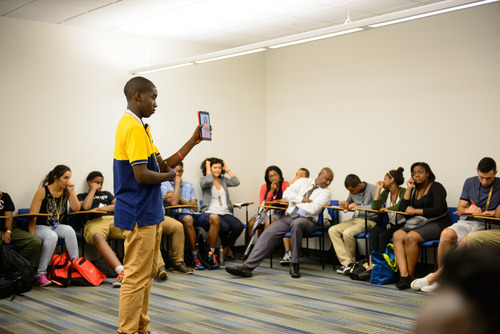
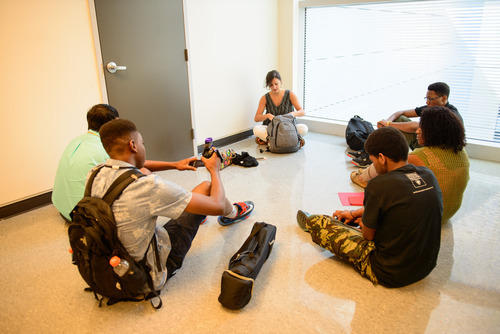
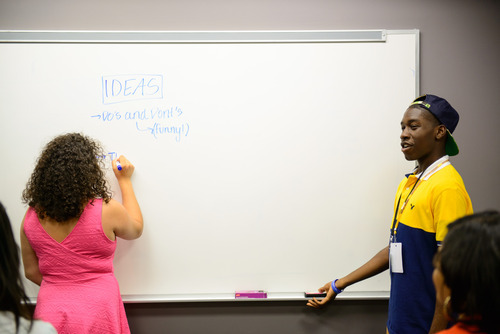
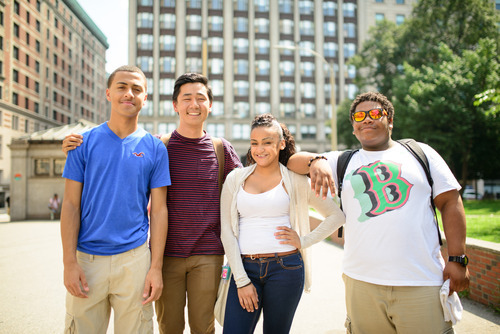
For more follow us on Twitter and Instagram: @emersonLEEP
0 notes
Text
Important Teachings via Celebrities?
Today's topic: Beyonce.
Our eLEEP peer leaders had a lot to say about the cover face of TIME magazine's annual "100 Most Influential People" issue. Perhaps her feminist voice and entrepreneurship make up for the lack of appropriate clothing.
We looked at the magazine cover alongside B's essay on gender equality for The Shriver Report, in which B preaches the need for equality and equality teaching; here's an excerpt from the piece:
"Humanity requires both men and women, and we are equally important and need one another. So why are we viewed as less than equal? These old attitudes are drilled into us from the very beginning. We have to teach our boys the rules of equality and respect, so that as they grow up, gender equality becomes a natural way of life. And we have to teach our girls that they can reach as high as humanly possible."

Contradiction, anyone? Of course, these are separate publications, but our peer leaders still had opinions about B's image versus her preachings.
What does it say about one of the 100 most influential people if they're flaunting sex on the promotional cover? And how does this "most influential" look translate to the masses of young people looking towards B as a powerful, independent woman?
A lot of us put it into perspective by imagining our younger siblings emulating B's "influential" look. "She's making a bold statement, but I don't think it's about gender equality. She's naked!" one peer leader pointed out during our discussion.
Now lets look at the flip side: How much responsibility should we put on those faces in the media for our own interpretations of their influences? Underwear or not, Beyonce is one kick-ass chick making a name for herself through her work. Can we hold her responsible for society's interpretations and reactions to the choices that she makes?
0 notes
Photo
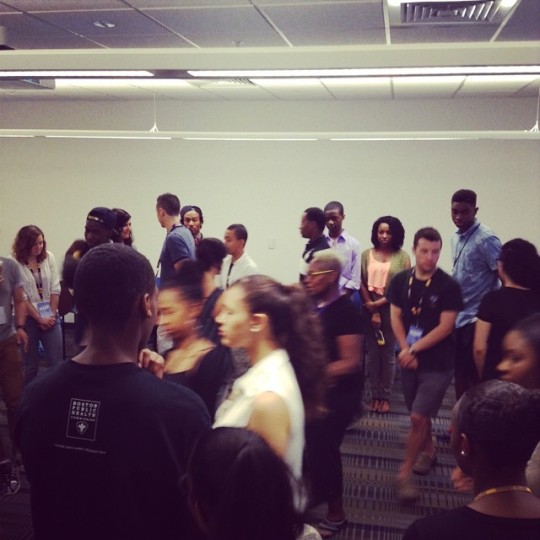
Getting that 9am blood flowing #eleep2014 #PLI #medialiteracy @emersoncollege
0 notes
Text
Media vs. Teens
A recent Huffington Post article tackled the media versus teens looking at the most media-friendly generation and what exactly they're getting in return: zilch.
"Teenagers are often singled out in the media to further create this dramatic, sensationalized stereotype that just, frankly, is not accurate. Our teens know this and feel this too.
According to a recent poll of more than 1,000 young people by the think tank Demos, four-fifths of 14- to 17-year-olds feel their age group is unfairly represented in the media. In addition, 85 percent believe these negative stereotypes affect their ability to get a job (and aren't we, as adults, always telling them to do just that?). Kind of ironic that the reason they can't find employment is oftentimes because of the way we have allowed society to portray them."
So, what's the deal? Seems like the teen-reliant industry is exploiting the youth to fuel its industry while deflecting the blame, causing it to bounce back onto the shoulders of our youth.
"We are in the midst of a culture that relies on shock TV for entertainment, and teens are caught in the middle. The media is "using" these kids to further their own agenda and their own bank account without any regard to the impact on them personally and as a generation. They are a target, the media's prey."
With eLEEP we often discuss the superficial societal norms the media portrays, but what about the generalizing, downright senseless attacks? As teens analyzing the media for a successful and functioning media-literate future, this is one sweeping statement we'd like to sweep under the rug for good.
0 notes
Photo
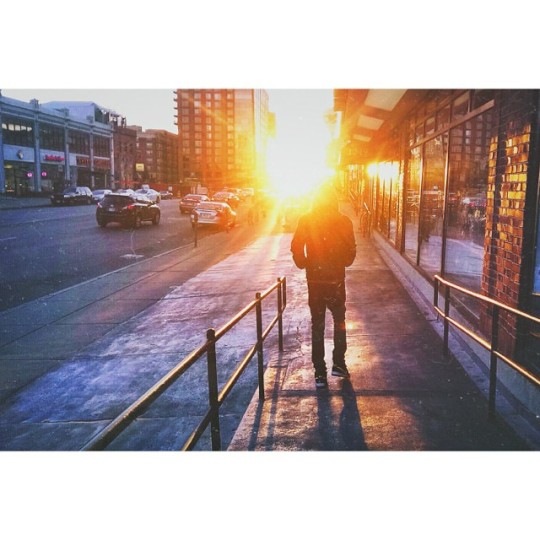
"You think you know death but you don’t, not until you’ve seen it, really seen it. It gets under your skin and lives inside you. You also think you know life, stand on the edge of things and watch it go by, but you’re not livin it, not really, just a tourist, a ghost. Then you see it, really see it, and it gets under your skin and lives inside you and there’s no escape. There’s nothing to be done and you know what? It’s good. It’s a good thing and that’s all I’ve got to say about it."
2 notes
·
View notes
Text
eLEEP 2014
eLEEP 2014 is in full swing! We kicked off the summer with Boston's #StartStrong students and had a great day of discussion and collaboration. Remember to follow us on Twitter and Instagram for more updates and photos! #eLEEP2014 @emersonleep
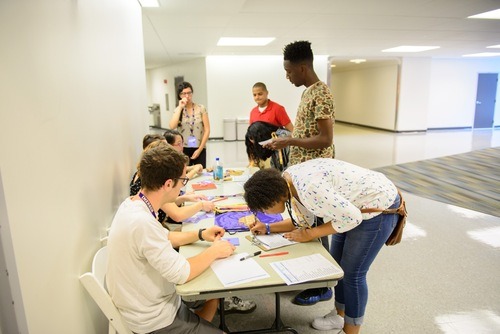
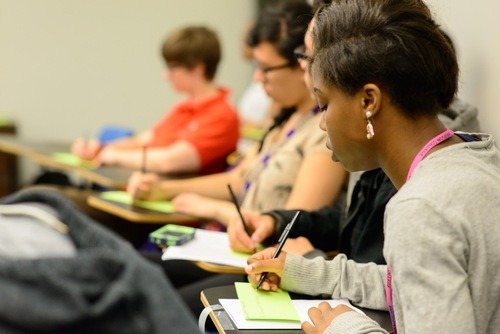
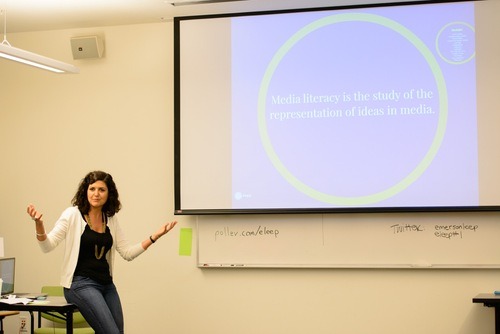
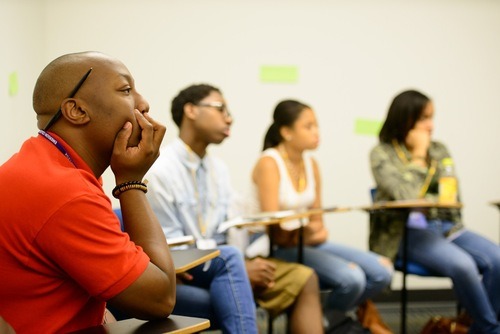
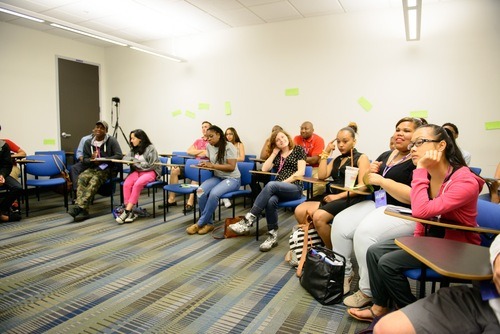

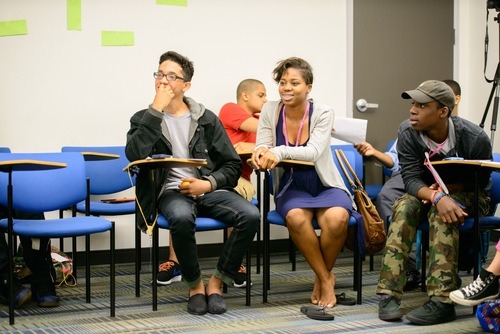
1 note
·
View note
Photo
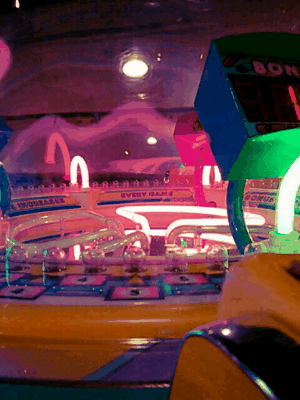
The eLEEP team heads to Laser Craze in Woburn for a morning of laser tag, pizza, and arcade games! (Taken with GifBoom)
0 notes
Text
VMA's 2013: The Miley Fascination
After last night’s Video Music Award show, it’s no question who’s performance is stealing the attention of audiences everywhere. Hannah Montana is trending across social media and the Web, not as the Disney role model, but rather as the twerking, sexually explicit Miley Cyrus herself.
“Miley better get a ... pregnancy test after all of that grinding.” –Kevin Hart, comedian.
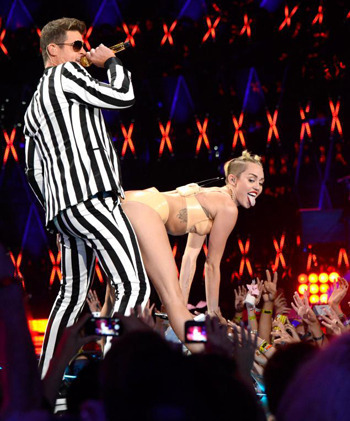
Indeed, though joking, Hart’s comment on Cyrus’s performance is a perfect summation of the actions the singer/actress perpetrated on stage. After performing her song “We Can’t Stop,” and Robin Thicke’s “Blurred Lines,” audiences both at the event and online, took to the airwaves and the Internet to criticize and call out the young starlet for the inappropriate presentation and for falling so far off her role model pedestal.
The question becomes however, why are audiences so quick to judge and yet so eager to watch?
Each Miley Cyrus VMA 2013 video posted on Youtube has over 50,000 views, most are in the millions, proof that audiences are seeking out the video even after hearing the reviews. But what is it that is driving people to seek out and view the video? Is it the starlet’s decline from tween role model to sexual young adult? Or maybe, its the shift in what is deemed appropriate to be featured on live television that is catching the world’s attention.
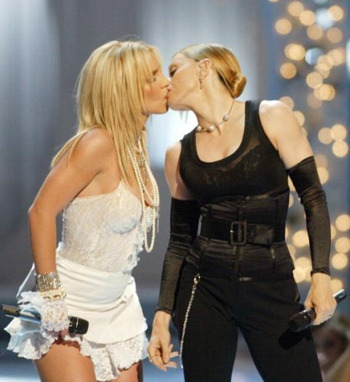
In 2003, the VMA’s shocked the world with the infamous “wedding” kiss between Madonna and Britney Spears. At the time, the same-sex kiss changed the definition of what was allowed on-air.
Interestingly enough, Cyrus was reported to have promised a “performance that would be even crazier” than the 2003 kiss before this year’s VMA’s aired. Crazier it was; but were the two moments even comparable? The 2003 kiss was meant to be sexual, but more importantly, it helped open the conversation regarding homosexuality in the media. What conversation is Miley’s performance starting?
0 notes
Photo
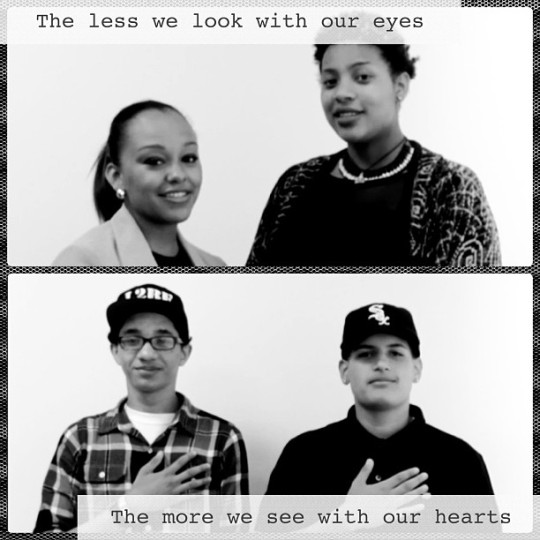
The less we see with our eyes, the more we see with our hearts ...#love #relationship #eleep #startstrong #boston #bostonpublichealth #bps #tagsforlikes #bestoftheday #like #fresh #photooftheday
#love#like#relationship#bostonpublichealth#boston#startstrong#tagsforlikes#bps#bestoftheday#eleep#fresh#photooftheday
1 note
·
View note
Photo
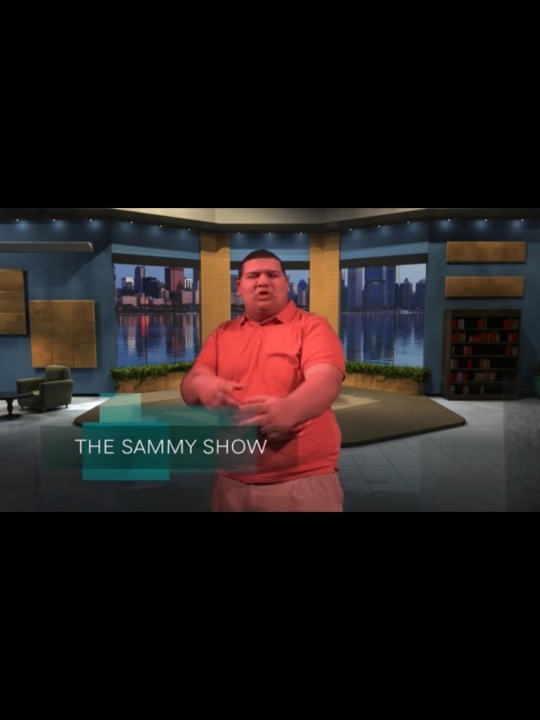
#TheSammyShow focusing on teen dating violence , and giving a chance if they are in this type of relationship to get help & get out
0 notes
Text
Buzzfeed Taking Over: What This Means for News
There’s something to be said for the success Buzzfeed has had across the Internet universe; they’ve taken over twitter feeds and facebook profiles without lifting a finger from inside the company. Buzzfeed’s short, list-style content formate has made their material easily shareable and attractive to readers looking for a quick read. That said however, this new format trend has made the already shortened attention-span of the average Generation Y user seemingly even shorter.
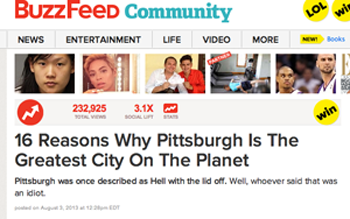
Furthermore, Buzzfeed’s most successful content tends to address social or cultural trends. Indeed in recent months Buzzfeed articles sporting subjects like “15 Reasons Why Pittsburgh is the Best City,” or “23 Reasons Why University of Maryland has the Best Students,” have been hugely popular, garnering over thousands of views, likes, and shares, and yet apparently no one has seemed to catch on to the fact that Buzzfeed has published similar articles boasting the prowess of multiple major cities—or maybe users don’t really care that Buzzfeed is making a case for Pittsburgh, Boston and New York, just as long as their city is represented.
But this conversation takes on a whole different meaning, when Buzzfeed starts attempting to report “real news” and not just nostalgic memories of growing up in the 90’s. There are many critics in fact who believe hard-hitting, breaking news about politics and such should be kept off Buzzfeed. The question becomes: is it worth it for organization’s like Buzzfeed to report this type of news in order to get the information in front of audience’s who might otherwise not be reading about it? Or, does the format and connotation of a site like Buzzfeed minimize the seriousness of the information and take intellect out of journalism?
Back in October, 2012 when Buzzfeed first announced that they were looking to add longform editors to their staff, many competitors, fans, and critics were surprised and pessimistic about what this meant for the company and their content. Even now, almost a year later, such articles have become more prevalent on the site, however you would be hard pressed to convince anyone that Buzzfeed’s reputation as a go to for fun, light, quick-reads has changed. Especially when the so-called "news" they tend to cover is usually far from the hard-hitting content of CNN, FoxNews, BBC, New York Times, etc. (See the picture below if you disagree--this is so called, "Political News").
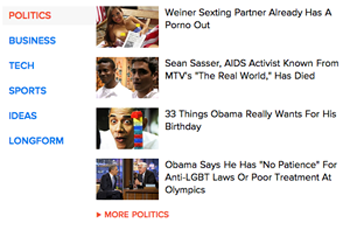
The big question is, in the age of Buzzfeed what constitutes news anymore and what is the most effective way to relay that news. Should traditional sources change up their formatting to be more reflective of the short-form list structure that seems to be successful at attracting readers? Should Buzzfeed be taking on more legitimate news stories and materials? Most importantly, what does this fascination with Buzzfeed say about our society's news and media consumption?
http://www.poynter.org/latest-news/top-stories/190421/as-longform-finds-a-new-home-at-buzzfeed-perhaps-its-a-good-gateway-drug/
1 note
·
View note